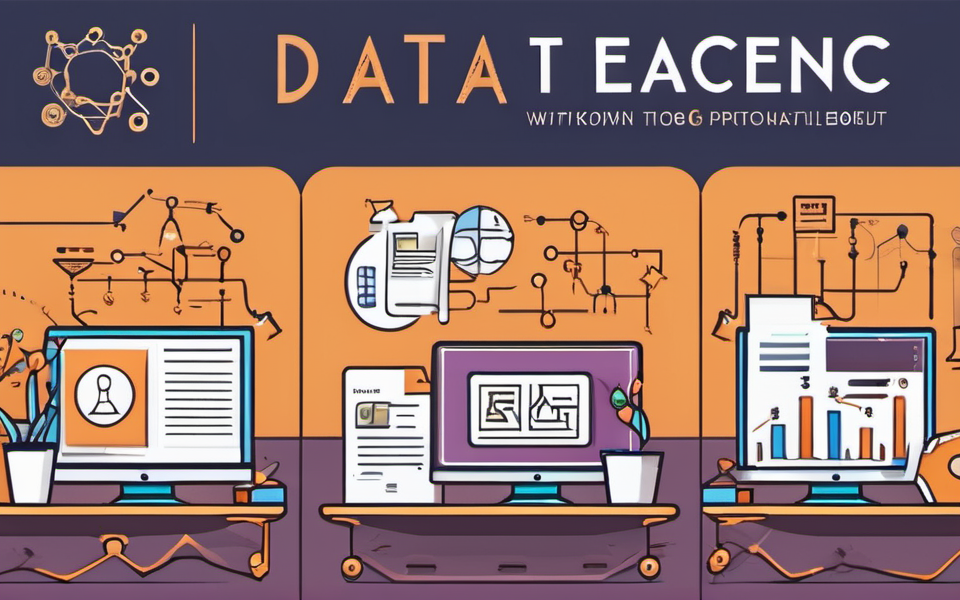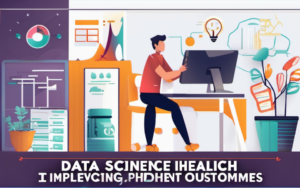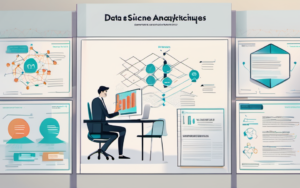Imagine having a toolbox filled with shiny, powerful tools that can help you build anything you desire. In the world of data science, there are magical tools and platforms that can transform raw data into amazing insights. Let’s dive into some of these incredible resources that every data enthusiast should know about!
The World of Python Libraries
Python is like the Swiss Army knife of data science. It’s versatile and comes with an array of libraries that make data analysis a breeze. Some of the most popular libraries include NumPy, Pandas, and Matplotlib.
NumPy: Crunching Numbers with Ease
NumPy, short for Numerical Python, is an essential library for any data scientist. It helps you perform numerical operations on large datasets effortlessly. Whether you need to handle arrays, perform mathematical functions, or work with matrices, NumPy has got you covered.
Pandas: Data in Neat DataFrames
Pandas is the go-to library for data manipulation and analysis. It introduces DataFrames, which are like Excel spreadsheets but on steroids. You can effortlessly import data, clean it, filter, sort, and even merge different datasets. It’s perfect for transforming messy raw data into something meaningful.
Matplotlib: Visualizing Data Beautifully
If you love visual stories, Matplotlib is your best friend. This library allows you to create stunning graphs, charts, and plots to present your data in an easy-to-understand manner. From simple line graphs to intricate 3D plots, Matplotlib makes your data come alive.
Jupyter Notebooks: Your Interactive Lab
Jupyter Notebooks are like interactive labs for data scientists. They let you write code, run it, and see the results all in one place. This seamless integration makes it perfect for experimentation and collaboration.
Why Jupyter Notebooks Are Awesome
In Jupyter Notebooks, you can mix code with rich text, equations, and visualizations. It’s like having a coding and documentation tool all in one. This makes it easy to explain your thought process, share findings, and collaborate with others.
Installing and Using Jupyter Notebooks
Getting started with Jupyter Notebooks is simple. You can install it using Anaconda, a popular data science distribution that includes Jupyter and many other tools. Once installed, you can create and run notebooks straight from your browser.
Extensions and Customizations
To make Jupyter Notebooks even more powerful, you can explore various extensions and customizations. These can include additional functionalities like Table of Contents, Syntax Highlighting, and more, enhancing your productivity and creativity.
RStudio: Powerhouse for R Language
If you prefer R over Python, then RStudio is the must-have tool for your data science projects. RStudio provides an integrated development environment (IDE) for R, making it easy to write, test, and debug your code.
Features of RStudio
RStudio comes packed with features tailored for data scientists. It supports code completion, syntax highlighting, and offers an interactive R console. Moreover, you can create and manage R scripts, R Markdown documents, and Shiny web applications all in one place.
Data Visualization and Reporting
One of RStudio’s strengths is data visualization. With libraries like ggplot2, you can make complex data presentations simple and beautiful. Additionally, R Markdown allows you to combine code, output, and text into reports that are easy to share.
Integration with Version Control
Managing different versions of your project is easy with RStudio’s integration with Git and SVN. You can track changes, collaborate with team members, and revert to previous versions effortlessly, ensuring that your projects are always safe and sound.
Associated Cloud Platforms
In the age of cloud computing, integrating your data science work with cloud platforms can significantly boost your productivity and scalability.
Google Cloud Platform (GCP)
GCP offers a plethora of tools for data scientists. From BigQuery for large-scale data analysis to AutoML for building machine learning models without coding deep expertise, GCP has it all.
Amazon Web Services (AWS)
AWS provides powerful services such as SageMaker for developing, training, and deploying ML models, Redshift for data warehousing, and S3 for scalable storage solutions. All these tools bring enterprise-level functionality within reach.
Microsoft Azure
Azure offers a data science suite with Azure Machine Learning, Databricks, and various AI services. It’s designed for building, deploying, and managing data solutions efficiently. Plus, its seamless integration with other Microsoft products makes it highly versatile.




